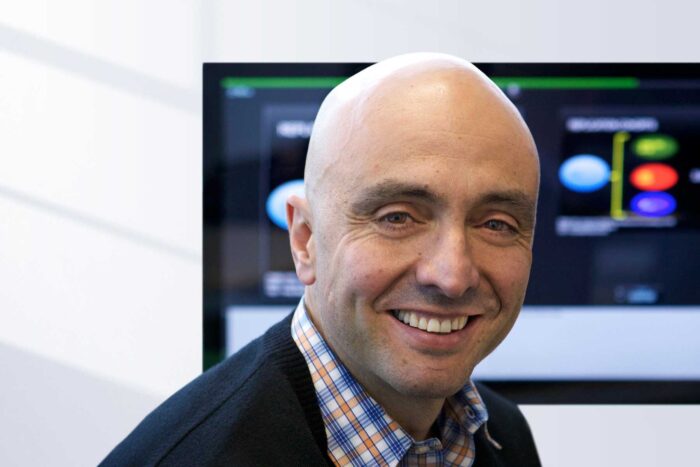Director of pediatric hematology and oncology division named
Jorge Di Paola noted for expertise in genetics of blood disorders
 Courtesy of Jorge Di Paola
Courtesy of Jorge Di PaolaJorge Di Paola, MD, a noted expert in pediatric blood disorders, has been named director of the pediatric Division of Hematology and Oncology at Washington University School of Medicine in St. Louis. He will begin his new position later this year.
Jorge A. Di Paola, MD, recognized globally for his expertise in pediatric blood disorders, has been named director of the pediatric Division of Hematology & Oncology at Washington University School of Medicine in St. Louis. He will begin his new position in late summer or early fall.
Di Paola comes from the University of Colorado School of Medicine, where he leads the program in pediatric hematology and is a director of basic and translational research in pediatric hemostasis and thrombosis, and a professor of pediatrics, hematology and genetics. At Washington University, he will continue his research, funded by the National Institutes of Health (NIH), on genes linked to pediatric blood disorders and cancer.
He also will treat patients at St. Louis Children’s Hospital through the Siteman Kids pediatric cancer program.
Di Paola succeeds Shalini Shenoy, MD, a professor of pediatrics who has served as the interim director of the pediatric Division of Hematology & Oncology since September 2017.
“I am thrilled to come to Washington University for many reasons, including the School of Medicine’s exceptional and collaborative academic and scientific environment,” said Di Paola, who is also associate director of the Medical Scientist Training Program at the University of Colorado. “These are exciting times for pediatric hematology, oncology and bone marrow transplant. Advances in genomics and treatments for hematological disorders, as well as novel cancer and cellular therapies, are changing the landscape of the field.”
Di Paola’s laboratory focuses on the genetics of pediatric blood disorders. His research has found disease-causing genes for hereditary cancer as well as for thrombocytopenia, a condition involving a low blood platelet count. His studies also have contributed to an understanding of the genetic underpinnings of von Willebrand disease, an incurable, inherited disorder in which a person’s blood doesn’t clot properly.
“The major goal for the future is to continue with the excellent tradition of top-notch research, clinical care and training that characterizes Washington University’s division and the Department of Pediatrics, and to develop new programs to reflect these changes in the field with the ultimate goal of improving children’s health,” he said.
Gary A. Silverman, MD, PhD, the Harriet B. Spoehrer Professor and head of the Department of Pediatrics, said Di Paola comes to Washington University with international prestige in pediatric hematology and oncology. “He has achieved distinction as a physician, scientist, mentor and educator,” Silverman said. “Most importantly, he has demonstrated dedication to transforming the lives of children with blood disorders and cancer.”
Di Paola is vice president of the American Society of Pediatric Hematology/Oncology and will become the organization’s president in 2020.
He earned his medical degree in 1990 from the University of Buenos Aires in Argentina and completed his residency at a hospital in Buenos Aires. Di Paola then completed a pediatric residency and hematology and oncology fellowships in 2000 at Children’s Hospital of Orange County in Orange, Calif.
In 2000, he joined the faculty of the pediatrics department at the University of Iowa in Iowa City, where he remained for eight years before moving to the University of Colorado.






